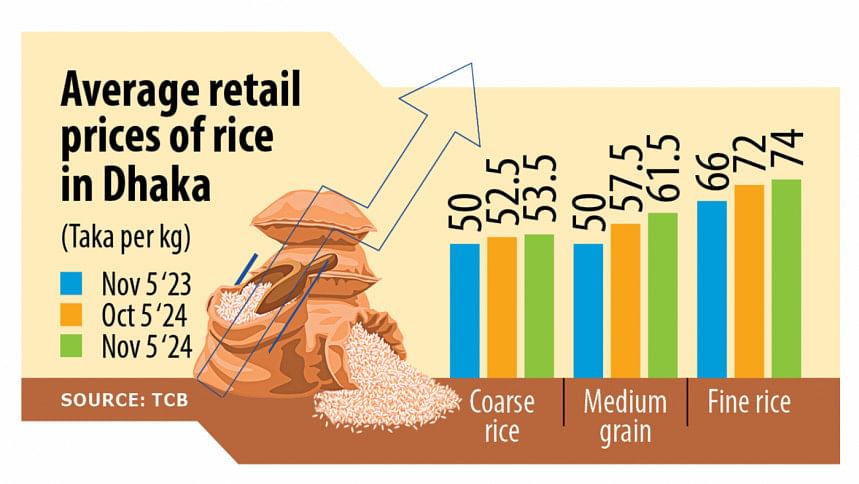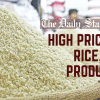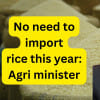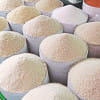Govt gears up efforts to raise rice imports to curb prices

Against the backdrop of rising prices, the government has geared up efforts to buy rice from the international market to replenish stocks and ensure distributions under social safety net schemes to arrest market volatility.
Since October 17, the Directorate General of Food has floated two international tenders to buy 1 lakh tonnes of rice from the international market.
It also invited bids from suppliers to buy a total of 1 lakh tonnes of wheat in this fiscal year of 2024-25.
"We have started the process of buying rice to augment food stock. Our purchases from domestic and international markets will be on," said a senior official of the directorate requesting anonymity.
Public food stocks stood at 13.58 lakh tonnes, which includes 9.06 lakh tonnes of rice, on November 4.
Current rice stocks are below the 10.5 lakh tonnes recommended by experts for enabling market interventions by the government to curb the scope for private millers and traders to artificially influence prices.
Over the last one month, retail prices of coarse rice, the cheapest staple, rose by nearly 2 percent to Tk 53.5 per kilogramme in Dhaka.
The price of the medium grade grain, which is relatively expensive, soared 7 percent.
Prices of all types of rice yesterday were higher by as much as 15 percent from that a year ago, according to data of the state-run Trading Corporation of Bangladesh.
To contain prices by increasing the supply, the food ministry earlier this week asked private traders to apply for rice imports by November 14.
The move came shortly after the National Board of Revenue (NBR) removed all the duties on the import of the staple grain.
Now, only a 2 percent advance income tax is payable on the import of rice.
Besides, by the end of last month, the food ministry requested the high-ups of the government for allowing the import of 11 lakh tonnes of rice.
They said this was to build reserves to ensure the public food distribution target of 30 lakh tonnes during the current fiscal year of 2024-25.
Of the amount, the government plans to distribute nearly 24 lakh tonnes under various social safety net schemes.
Earlier, the advisers' committee on economic affairs decided to import 5 lakh tonnes of rice, whereas the budget allocation for the current fiscal year was 3.5 lakh tonnes.
The government also recently eased public procurement rules for rice imports through open tender.
Bangladesh did not import any rice in fiscal year 2023-24.
Neither the public nor the private sector imported any rice between July 1 and November 4 this fiscal year.
The official of the food directorate said farmers have started reaping Aman season paddy, which accounts for the second-biggest amount of rice harvested.
The extent of crop damage for repeated floods, particularly in the eastern region, at the end of August and last month, would be clearly understandable once harvests end.
"We will get an idea regarding the import requirement after that," he said, adding, "But our efforts are on. We are in discussions with India, Vietnam and Myanmar to import rice under government-to-government contracts."
Estimates by the Department of Agricultural Extension (DAE) show that Aman acreage declined to 57.35 lakh hectares this season from 57.5 lakh hectares in the previous one.
The Bangladesh Trade and Tariff Commission in a report on October 29 cited the DAE estimate and said the recent floods had caused a production loss of 8.39 lakh tonnes.
The food ministry official said fresh harvest of Aman rice has started arriving in the market and prices of the grain were likely to decline in the coming weeks.
The good news is that India is likely to get a good harvest this season, he added.

 For all latest news, follow The Daily Star's Google News channel.
For all latest news, follow The Daily Star's Google News channel. 








Comments